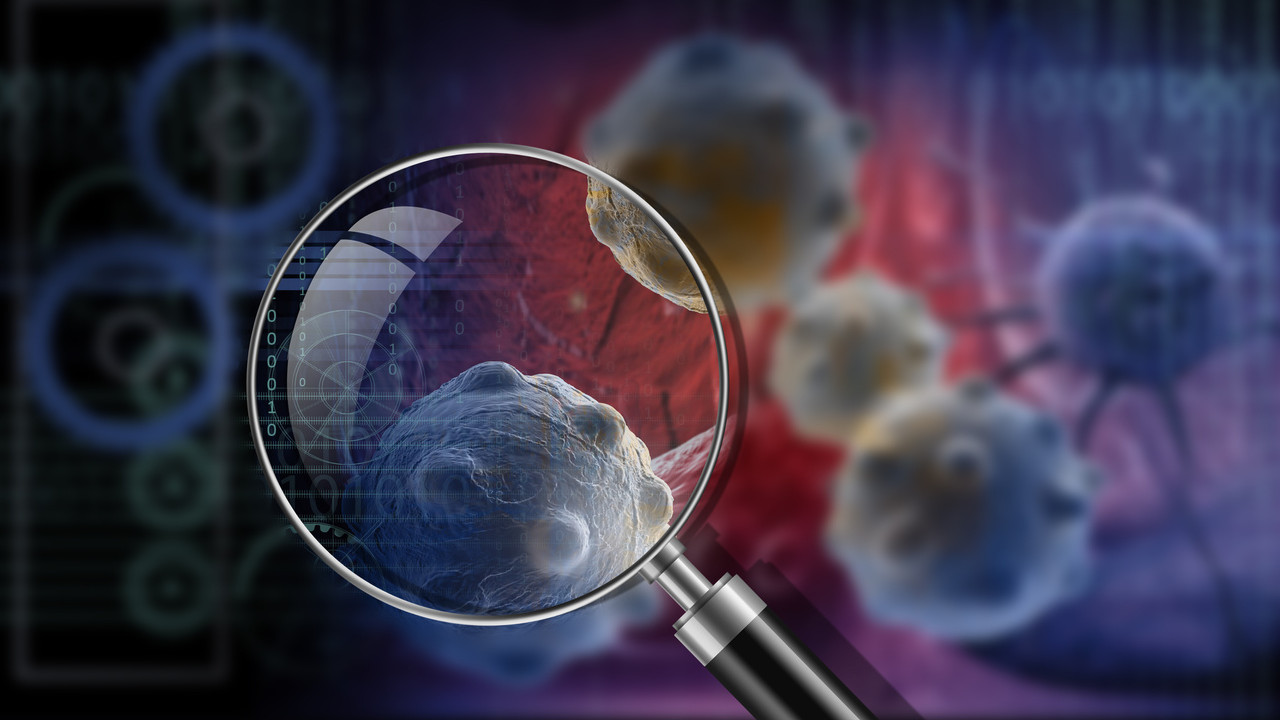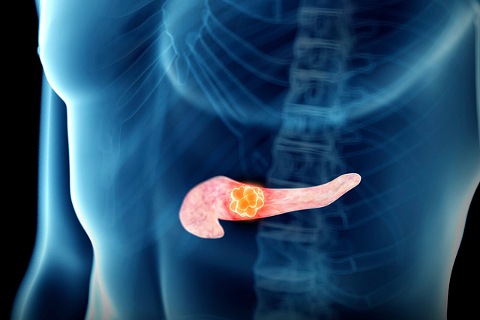Pancreatic cancer (90% are Pancreatic Ductal Adenocarcinoma, PDAC) is the 10th most common type of cancer. More than 2,400 people were diagnosed in the Czech Republic in 2022 and approximately 2,100 patients, which is more than 87%, died. Late diagnosis is the main reason for this high mortality rate.

Treating pancreatic cancer
Successful treatment for pancreatic cancer usually includes surgical removal of the tumour – but the tumour can only be completely removed if it is detected at early stages. Unfortunately, due to asymptomatic onset of disease 90% of patients are diagnosed at late metastatic stages, when the tumour has already spread to other parts of the body and surgery is no longer possible.

Surgery is followed by either chemotherapy or radiotherapy treatment. Only 3.1% of patients with advanced pancreatic cancer live for at least 5 years after diagnosis, as compared to 43.9% of patients whose cancer is diagnosed early. Early diagnosis is critical for better treatment outcomes.
How is pancreatic cancer detected?
Pancreatic cancer is difficult to diagnose because there are often no obvious symptoms in the early stages. Currently the disease is most often detected using imaging modalities such as EUS and MRI/MRCP or a CT scan. You can learn more about these diagnostic methods here.
Who belongs in the high-risk group?
The risk of developing pancreatic cancer in the general population is approximately 1.5%. This risk is increased by smoking, alcohol consumption and age – most patients are diagnosed between the ages of 65 and 70.
Individuals who are affected by at least one of the following factors are at significant risk of developing the disease:
- Family members with pancreatic cancer – at least two first-degree or second-degree relatives with pancreatic cancer in the same family line.
- The presence of hereditary pancreatitis – patients who have recurrent acute or chronic pancreatitis and a proven mutation in a gene associated with this syndrome.
- At least one of the following mutations has been detected:
- Peutz-Jeghers syndrome (STK11 gene),
- Li-Fraumeni syndrome (CDKN2A gene),
- Familial adenomatous polyposis (APC),
- Lynch syndrome (MLH1, MSH2, MSH6, PMS2, EPCAM),
- a proven mutation in one of the BRCA1, BRCA2, ATM, PALB2, or TP53 genes and pancreatic cancer in at least one first-degree or second-degree relative.
